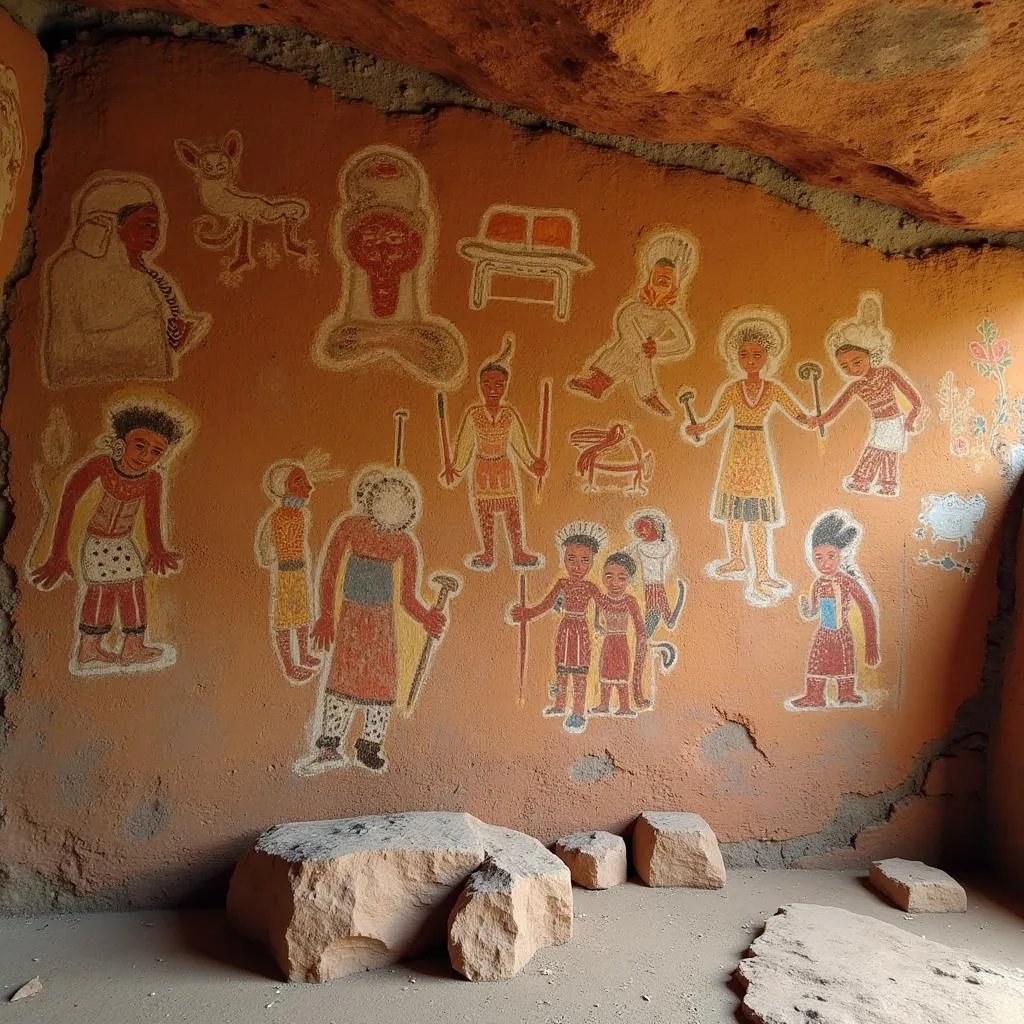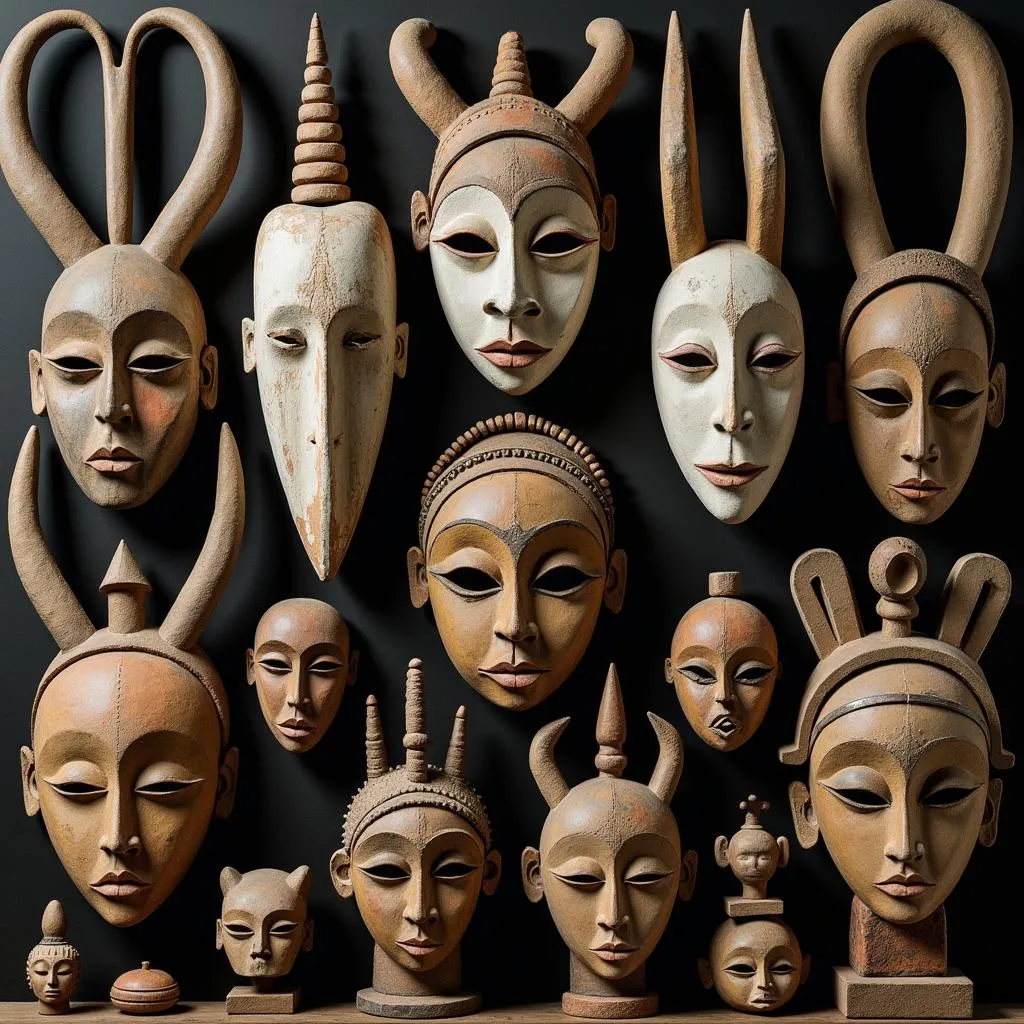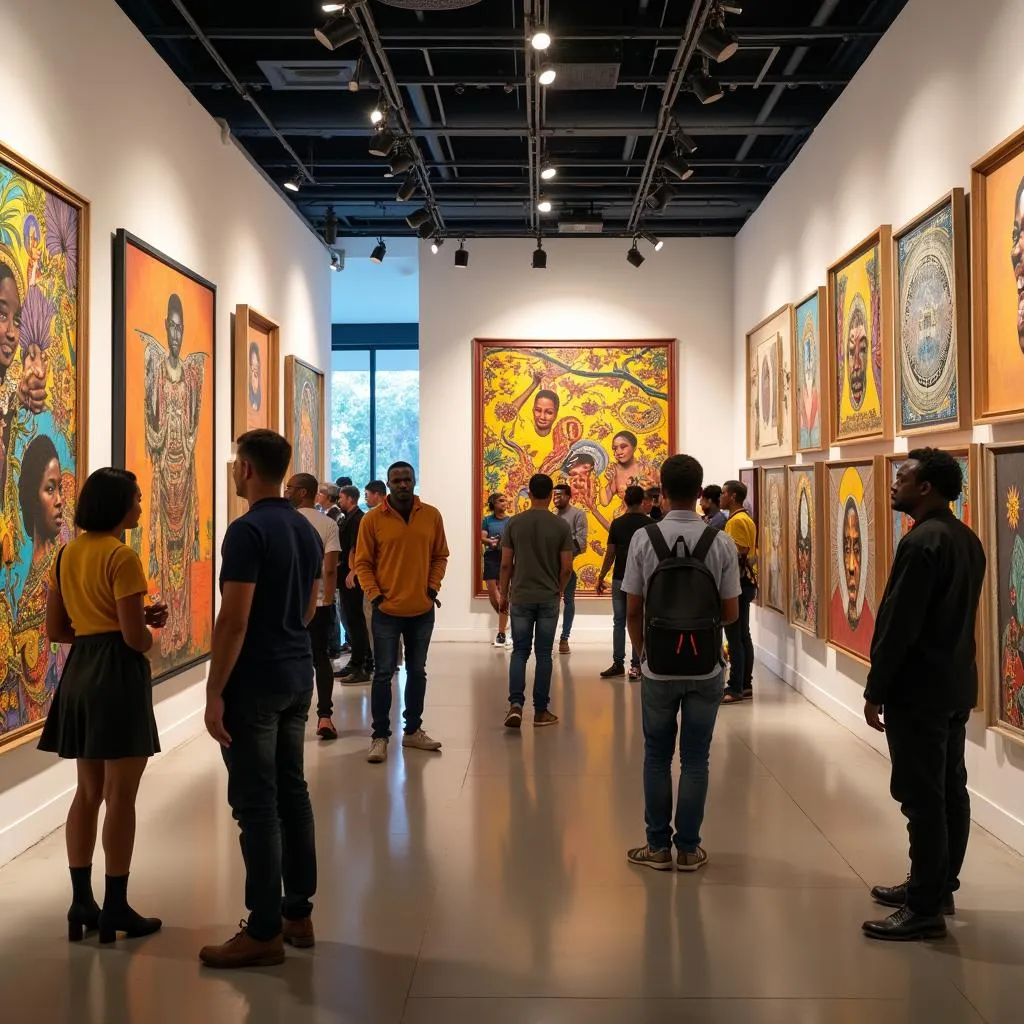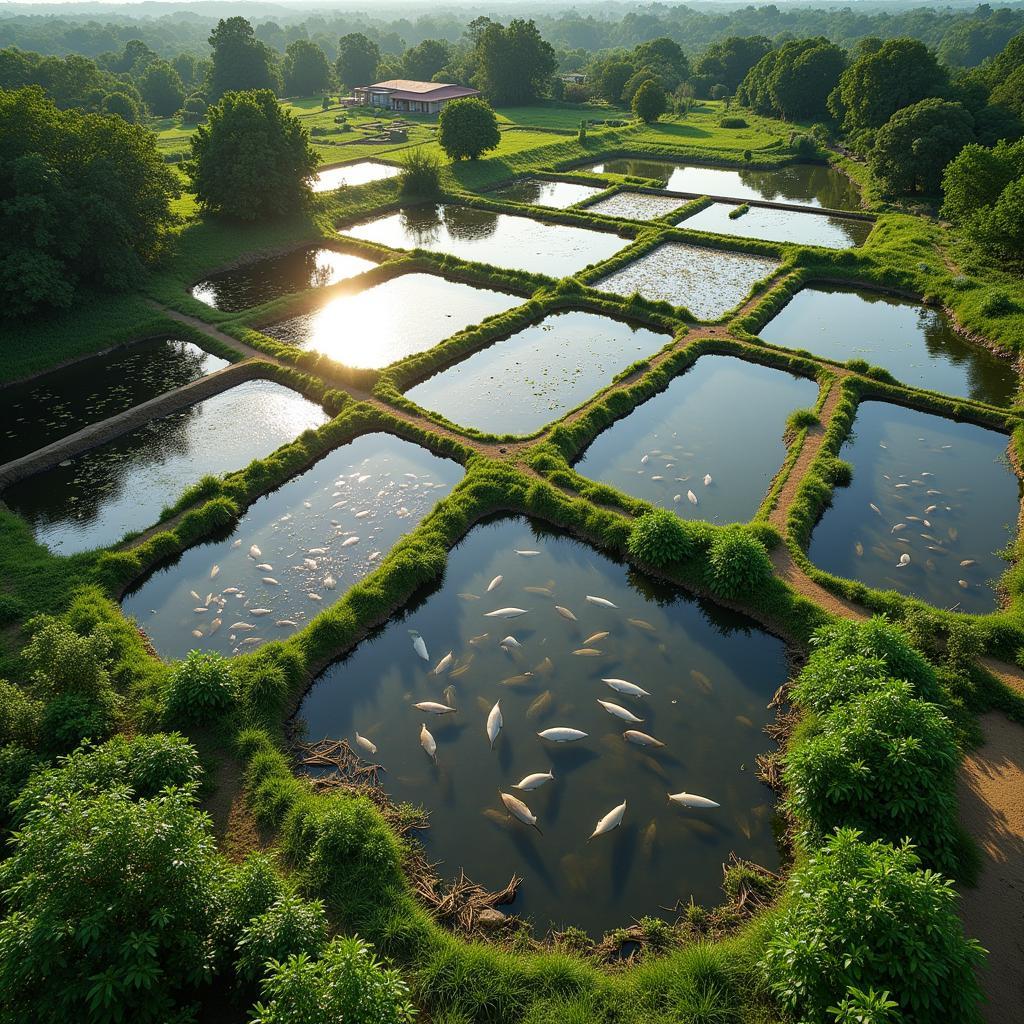African Art Information: A Rich Tapestry of Culture and Creativity
African art is a vibrant and diverse expression of the continent’s rich history, cultural heritage, and spiritual beliefs. From ancient rock paintings to contemporary sculptures, African art encompasses a wide range of styles, materials, and techniques that reflect the unique perspectives of its diverse people. This article delves into the fascinating world of African art, providing valuable information and insights into its historical significance, stylistic variations, and contemporary relevance.
 Ancient African Rock Paintings
Ancient African Rock Paintings
A Historical Journey Through African Art
African art boasts an extensive history, dating back thousands of years. Archaeological discoveries, such as the iconic rock paintings found in the Sahara Desert and the intricate bronze sculptures of the Benin Empire, provide a captivating glimpse into the artistic traditions of ancient African civilizations. These artworks offer invaluable insights into the daily lives, rituals, and beliefs of these societies, showcasing their remarkable skills and artistic ingenuity.
For centuries, African art played a pivotal role in traditional ceremonies, rituals, and social practices. Masks, sculptures, and textiles were often imbued with spiritual significance, serving as intermediaries between the physical and spiritual realms. The craftsmanship and symbolism embedded within these artworks reflect a profound understanding of cultural values and ancestral connections.
Exploring the Diverse Styles of African Art
From the intricate beadwork of the Maasai people to the bold and colorful Ndebele house paintings, African art exhibits a remarkable diversity of styles and aesthetics. Each region and ethnic group in Africa has developed its own unique artistic traditions, shaped by their environment, cultural values, and historical experiences.
 Diverse Styles of African Masks and Sculptures
Diverse Styles of African Masks and Sculptures
West African art, for example, is renowned for its intricate bronze casting, exemplified by the Benin Bronzes. These highly detailed sculptures, often depicting royal figures and courtly scenes, demonstrate the exceptional skill and artistry of the Benin Empire. In contrast, East African art is characterized by its use of natural materials, such as wood, fiber, and clay. The Makonde people of Tanzania and Mozambique are renowned for their expressive wooden sculptures, often depicting elongated figures with exaggerated features.
The Influence of African Art on Western Modernism
During the early 20th century, African art played a pivotal role in shaping the development of Western modern art. Artists such as Pablo Picasso, Henri Matisse, and Amedeo Modigliani were deeply inspired by the expressive forms, bold colors, and abstract elements found in African masks, sculptures, and textiles.
The influence of African art can be seen in Picasso’s groundbreaking work, Les Demoiselles d’Avignon (1907), which incorporated stylistic elements from African masks, particularly in the depiction of the women’s faces. This marked a significant shift in Western art, paving the way for the development of Cubism and other modernist movements.
Contemporary African Art: A Global Force
Today, African art continues to evolve and flourish, captivating audiences worldwide. Contemporary African artists are pushing boundaries, experimenting with new mediums and techniques, and engaging with global issues such as identity, globalization, and social justice.
From the vibrant and thought-provoking paintings of Chris Ofili to the powerful installations of El Anatsui, contemporary African art reflects the dynamic and ever-changing realities of the continent and its diaspora. These artists are gaining international recognition, showcasing their work in prestigious museums and galleries around the world.
 Contemporary African Art Exhibition at a Gallery
Contemporary African Art Exhibition at a Gallery
Conclusion
African art is a testament to the continent’s rich cultural heritage, artistic ingenuity, and enduring creativity. From ancient rock paintings to contemporary installations, African art provides a captivating window into the diverse cultures, beliefs, and experiences of its people. As we continue to explore and appreciate the beauty and significance of African Art Information, we gain a deeper understanding of Africa’s past, present, and future.
FAQs About African Art
1. What are some common materials used in African art?
African artists utilize a wide array of materials, including wood, bronze, ivory, clay, textiles, beads, and natural pigments. The choice of materials often reflects regional availability, cultural significance, and the intended purpose of the artwork.
2. What are some of the key characteristics of African art?
African art is often characterized by its emphasis on symbolism, functionality, and spiritual significance. Many artworks serve both aesthetic and ritualistic purposes, reflecting the interconnectedness of art and life in many African cultures.
3. How has colonialism impacted African art?
Colonialism had a complex and multifaceted impact on African art. While it led to the exploitation of African art and cultural heritage, it also fostered cultural exchange and influenced the development of new artistic styles.
4. Where can I learn more about African art?
Numerous museums, galleries, and online resources offer valuable information and insights into African art. Some notable institutions include The Metropolitan Museum of Art, The British Museum, and the Smithsonian National Museum of African Art.
5. Are there any ethical considerations when collecting African art?
Yes, it is crucial to ensure that any African art you purchase is ethically sourced and that the artists and communities involved in its creation are fairly compensated. Look for reputable dealers and galleries that prioritize ethical practices and cultural sensitivity.
Do you have questions about African art? Learn more about African fabric distributors, African Christian dating, and even the possibility of an African elephant pet? Contact us! We’re here to help! Phone: +255768904061, Email: kaka.mag@gmail.com or visit our office in Mbarali DC Mawindi, Kangaga, Tanzania. We have a 24/7 customer service team standing by.
